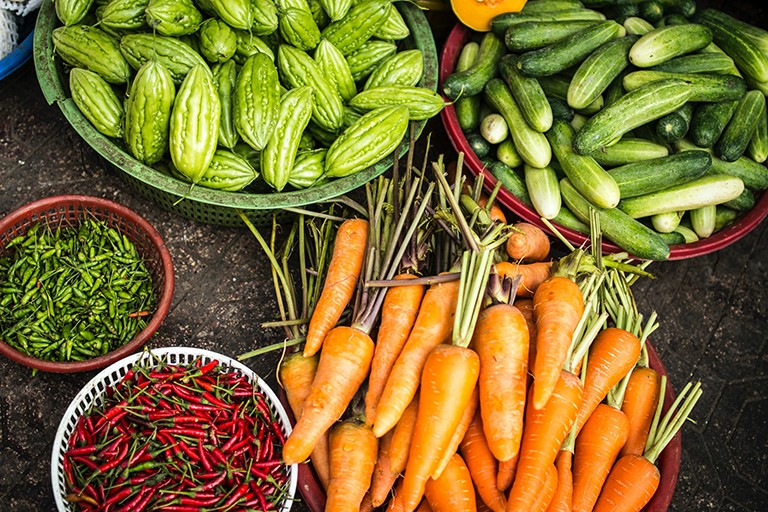Concordia research collab leads food industry change with launch of new sustainability tool, Tracéco
 Photo by Megan Thomas, via Unsplash
Photo by Megan Thomas, via Unsplash
Tracking and purchasing locally produced or processed food will soon be a piece of cake for Quebec’s public institutions, whatever their size.
It’s all thanks to a new high-performance software called Tracéco. The web-based tool was co-developed at the GastronomiQc Lab, a gastronomic sciences research collaboration between the food services departments at Concordia and the Université Laval, as well as the Institut de tourisme et d’hôtellerie du Québec (ITHQ).
A researcher at the lab produced the software to help food services stakeholders make the switch to buying local.
Sabrina Lavoie is Concordia’s senior director of budget planning and business development. She says that Tracéco holds the potential to improve industry standards due to its focus on traceability, a key factor in identifying food origin and quality.
“A number of our institutions have already adopted a sustainable food plan. With this new tool, we’ll be able to reach our local procurement targets more easily, and even exceed them,” she says.
“What’s more, Tracéco will simplify our operations thanks to product traceability. We’re convinced that this tool will be a real driver of positive change for institutional kitchens in Quebec.”
Saving time — and the environment
The new platform seeks to provide a simple, practical resource. The information will come from what will soon be an extremely rich database containing thousands of food products, which will be identified by barcodes or other product-related codes used by the industry.
Tracéco will also make it possible to synchronize user accounts in real time with those of preferred suppliers. This means that users will save time managing administrative tasks and logistics.
The application will also make it easier for institutions to manage and track all food purchases. Analysis and decision-making support will be available via personalized statistics reports.
And, future updates could incorporate more robust functions. Some examples include helping to reduce food waste or supporting users to select and purchase nutritionally dense foods.
Joining forces toward positive change
Tracéco was created with the support of the Ministère de l’Agriculture, des Pêcheries et de l’Alimentation du Québec (MAPAQ) and Aliments du Québec. The Stratégie nationale d’achat d’aliments Québécois (SNAAQ) also contributed.
The dynamic database’s first deployment phase will focus on three priority sectors: health and social services, education and higher education. These priorities were identified by the aptly named SNAAQ, a provincial strategy for the purchase of Quebec food products that seeks to provide Quebec public institutions with a local food procurement target by 2025.
“We are proud to have supported this project with the help of a team of committed experts,” says Véronique Perreault, professor-researcher at the ITHQ and co-director of the GastronomiQc Lab. One of these experts is Claudette Torbey, administrator of food services sustainability and quality at Concordia.
Sylvie Turgeon, co-director of the GastronomiQc Lab, notes that Tracéco could have positive systemic effects across the food supply.
“We are delighted to have developed a technological tool that will address a systemic issue and help increase the share of Quebec products in the food services sector.
In fact, responsible food consumption has been at the heart of food service activities in our various establishments for several years now. With the large purchasing volumes required to feed the community, we have the power to positively influence the food supply.”
The tool will be offered free of charge for three years to establishments already receiving support from the ITHQ as part of the SNAAQ initiative.
Passionate about local food and sustainability? Check out Concordia’s minor in sustainability studies.




